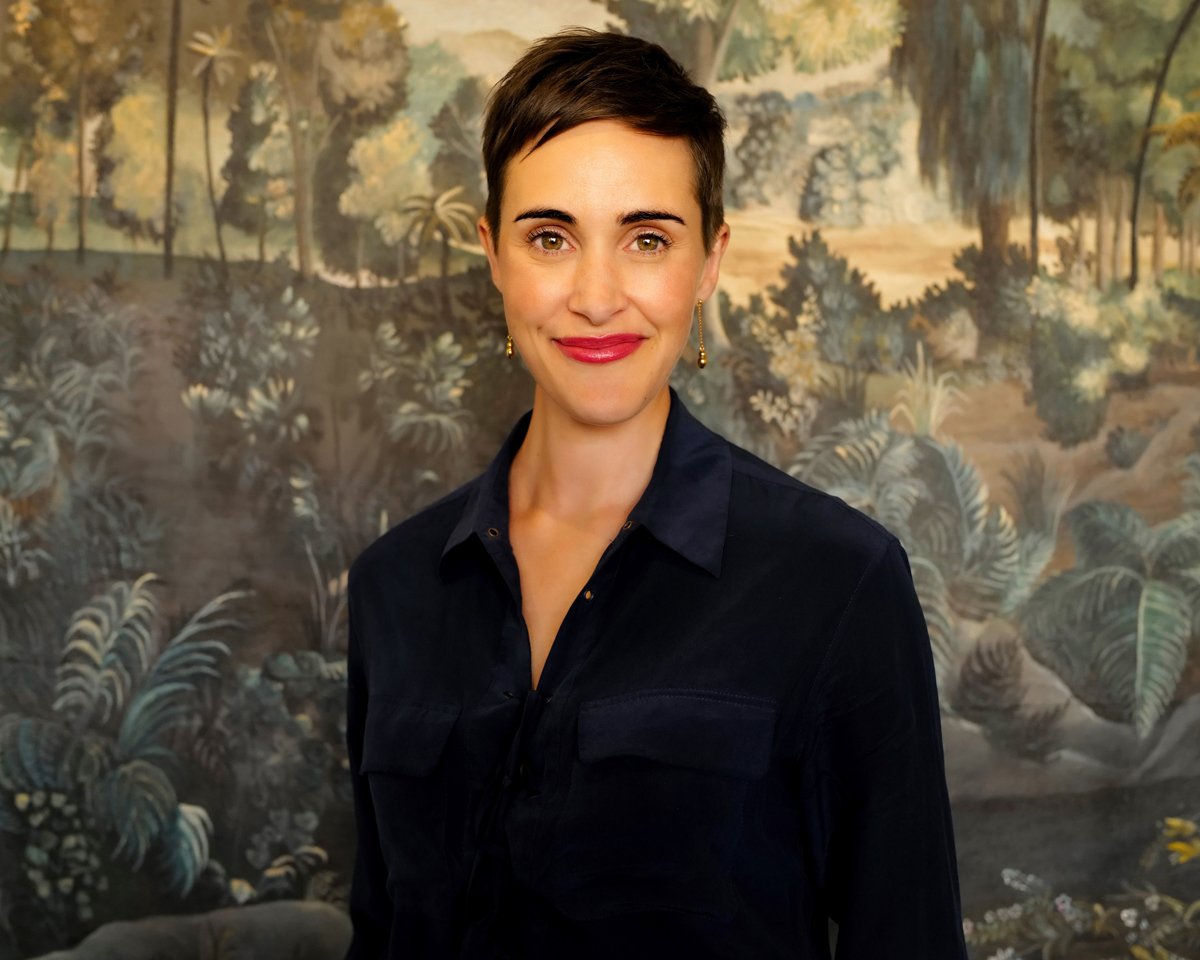Flex it – why headcount doesn’t mean success
New thinking from our Executive Director, Victoria Crockford on the future of work and agency models.
"How many people work for you?" This is a question I get asked frequently. My response is always the same: "How many do you need?"
At Heft, we've built our business around flexibility and expertise rather than headcount. In today's dynamic environment, we believe access to the right expertise at the right time is far more valuable than a static employee count.
Read Vic's full thoughts on why, in a world of constant change, flexibility isn't just a business strategy—it's the ultimate competitive advantage.
The New Arrogance: How employers are forgetting the human cost of market power
Op-ed by Emily Broadmore published by The Press, 20 March 2025
The job market has flipped, and some employers are making the most of it. Just like the housing market, suddenly the buyers have all the power and they're not afraid to throw their weight around without thinking about tomorrow.
We’re adding some more Heft!
Heft is proud to announce the appointment of Sarah Johnson as ournew General Manager.
Sarah steps into this leadership role with a mandate to drive Heft's continued growth, strengthen its position as a bold and strategic industry leader, and expand the firm's influence across New Zealand's communications landscape.
The high cost of ‘AI hesitation’
Companies must increase their productivity by ensuring both they and their consultants and service providers are all embracing AI for the easier work, says Emily Makere Broadmore in this opinion editorial for The Post.
Our AI philosophy
We use AI to supercharge ideas, not create them. Think of it as a powerful implementation tool that comes after strategy, not before. This approach naturally protects client information because we're not feeding existing content into AI systems - we're using AI to help articulate and implement our strategic thinking.
Come on down to Queenstown – just don’t use the loo
Op-ed by Victoria Crockford published by The Spinoff, 3 February 2025.
Each of the government’s various economic growth policy announcements asks something, in some way, of Queenstown. But it may not have the answer the government – and the rest of the country – wants, writes Victoria Crockford.
The Boost: December 2024 Edition
Check out Heft’s bi-monthly newsletter, The Boost.
The professional landscape in consulting and communications has evolved drastically over the past twelve months, and as Heft has evolved with it our two Directors have also been shaking things up in the literary and social sectors. In this issue of The Boost we discuss market changes, celebrate wins and highlight key dates and events for our Heft community.
Not even the sky for shelter
Published by the Otago Daily Times, 7 December 2024
A landmark New Zealand report into homelessness among women has been published. And it is horrifying, writes Kate Oktay.
Half the homeless population in New Zealand are women, indeed 50,000 women in Aotearoa define themselves as homeless.
"For too long, this has been an invisible issue," says Vic Crockford, director of the Coalition to End Women’s Homelessness, the organisation behind new research that reveals the scale of the problem.
"Understandably, people often think of men when they think of people experiencing homelessness, as we are often more likely to see a single man sleeping rough. In other countries that may be right, but not in New Zealand. In Aotearoa, it is half of the story.”
New study details harrowing experiences of homeless women
Interview with Victoria Crockford on RNZ, Nine to Noon, 6 December 2024.
A new report has found some homeless women find it safer to sleep on the streets than at a shelter.
The study outlines harrowing experiences of violence and abuse in emergency and transitional housing, as well as more broad inequities women face in the housing system.
A group of sector leaders were prompted to commission the research after seeing firsthand that support is largely designed with men in mind.
Vic Crockford is the former chief executive of Community Housing Aotearoa, and leads the Coalition to end Women's Homelessness.
Interview with Jesse Mulligan on death to the echo chamber
Interview on RNZ Afternoons, 5 December 2024
There's lots of talk around finding unity around at the moment ... various politicians here and around the world are promising to bring people together.
But it seems like it's not really happening, in fact if any anything, it feels like the political divide between left and right is getting worse. An opinion piece in the Sunday Star Times just this weekend examined
Titled Ending the echo chamber: How to find where left and right unite - was written by Emily Makere Broadmore.
And Emily some interesting observations about why the left and right don't talk to each other anymore.
‘Unhoused, unsafe’: Shining a light on NZ’s 57,000 homeless women
Published by The Post, 5 December 2024.
Women make up more than half of Aotearoa’s homeless population but there are no national policies or frameworks specifically aimed at women who are unhoused.
The housing system was “effectively flying gender blind”, which led to a new report by the Coalition to End Women’s Homelessness, launched on Thursday.
“The world we currently live in is one where too many of our women are unhoused, unnoticed, and unsafe,” according to the report Ngā Ara ki te Kāinga – Understanding Barriers and Solutions to Women's Homelessness in Aotearoa, commissioned by the coalition.
Safe rooms news ‘phenomenal’
Published by Otago Daily Times, 2 December 2024.
Queenstown now has safe rooms available for victims of domestic violence.
The announcement was made at the 2024 Inspirational Women Awards and Gala for Women’s Refuge on Saturday night, which raised more than $23,000 for family violence victims in the Queenstown Lakes district.
Now in its third year, the event was founded by Julia Strelou, of Queenstown, to fundraise to establish a safe house in the district while also celebrating female change-makers — to date, it has raised almost $80,000 for Women’s Refuge Services and Central Lakes Family Services.
Ending the echo chamber: How to find where left and right unite
Published by the Sunday Star Times, 1 December 2024
On the same day that I lunched in the Capital with a well-known left-leaning public intellectual, Act leader David Seymour was spotted on ThreeNews flicking through the pages of the newly released issue of Folly Journal.
My sister, an Aucklander oblivious to politics (although I assume she was aware of the hīkoi) messaged me excitedly. Folly's on tv! I took a photo!
Interview with Folly editor, Emily Broadmore
For the New Zealand Festival of the Arts, 13 November 2024
Folly is an annual print only anthology of art, short stories, non-fiction and poetry produced in Wellington city. Published in November each year, the 2024 issue has just been launched. I had a chat with Folly's editor, Emily Broadmore about why she chose to create a print journal in an increasingly digital world, how she selects the stories and what readers can expect.
The Boost: your bi-monthly does of news and insights from Heft
Check out Heft’s bi-monthly newsletter, The Boost.
We’re excited to introduce The Boost, our new Heft newsletter. In today’s fast-paced world, it can be hard to stay on top of the issues that truly matter. That’s why we’ve launched The Boost - to bring you updates on key issues that matter to you and add a little heft to your day. Our goal isn’t just to talk about what’s happening with our team, but to share insights and information that help you stay ahead of the curve.
Short Story Competition: Finding the right space to do your writing
Published by The Post, 15 September 2024.
Emily Makere Broadmore is a writer who never gets to use the writing space she created.
She’s raising twin 8-year-olds, running her business Heft Communications and producing her literary journal Folly.
“I joke that I created a writers studio based on what I would love to use and yet I never have time to use it.”
In 2023, Broadmore established the Wellington Writers Studio, upstairs from an art gallery corner of Cuba St and Ghuznee St in the 128-year-old Berry Building.
Once home to the New Zealand Photographic Company and William Berry, a popular portrait photographer, the building has been home to many artists over the years, including musicians and a dancing school.
What I learned as an OIA hunter
Op-ed by Emily Broadmore published by The Post, 25 August 2025.
OPINION: A report released by the Clark Foundation on Monday considers the growing perception of corruption, including when it comes to political lobbying and access to official information.
Its foreword, by former attorney-general Chris Finlayson, speaks more directly – claiming continued misuse of the Official Information Act by ministers and their departments and a call to critically examine our commitment to transparency.
As a director of a business that works hard to advocate for a diverse range of clients to government, this report is timely and interesting. Much like our constitution, our official information systems have evolved via a set of accepted social norms rather than a set of hard and fast rules.
The school system is not set up for modern working lives
Op-ed by Emily Broadmore published by The Post, 28 July 2024.
Over the past month conversations with clients and consultants have lacked their usual urgency.
The sense of progress has stalled, and phrases have been circling around lines like “let's push the meeting to end-July”, “let's kick the start of the project to end- July”, and “let's pick this up at end of July”.
Our roof is leaking. It was meant to be fixed this month. The text from a roofer a fortnight ago said he would now be “starting at the end of July”.
Reading between the lines in all these conversations I see the unspoken (because yes, we often like to pretend in our professional lives that the kids don't exist) truth, which is that three months per year of school holidays doesn't work for most households. People are struggling.
The women who want a home to call their own
Op-ed by Victoria Crockford published by The Otago Daily Times, 8 March 2024.
For many of us who live here, it will come as a shock to think of a retiree — someone that could be your mum or nana — sleeping in her car in an unnamed layby or carpark you pass every day on your way to school, or work, or the supermarket.
But this isn’t an isolated incident here and it’s a rapidly growing occurrence nationwide.
During the last Census, 102,123 people identified as experiencing ‘‘severe housing deprivation’’ — the proxy we use for those living unhoused or in uninhabitable conditions.
We need to write homeless women back into the story
Op-ed by Victoria Crockford, published in The Post, 8 March 2024.
OPINION: Imagine you have over $300 million to invest in critical infrastructure that transforms people’s lives.
Imagine your data tells you 50% of the people have very different needs from that infrastructure than the other half, but you ignore that detail.
That is the way we approach women’s homelessness in this country.
Every year, we invest over $300m in emergency housing grants, on top of significant investment in other housing subsidies. The last census found that 102,123 people identified as experiencing “severe housing deprivation” - the proxy we use for those living unhoused.





















